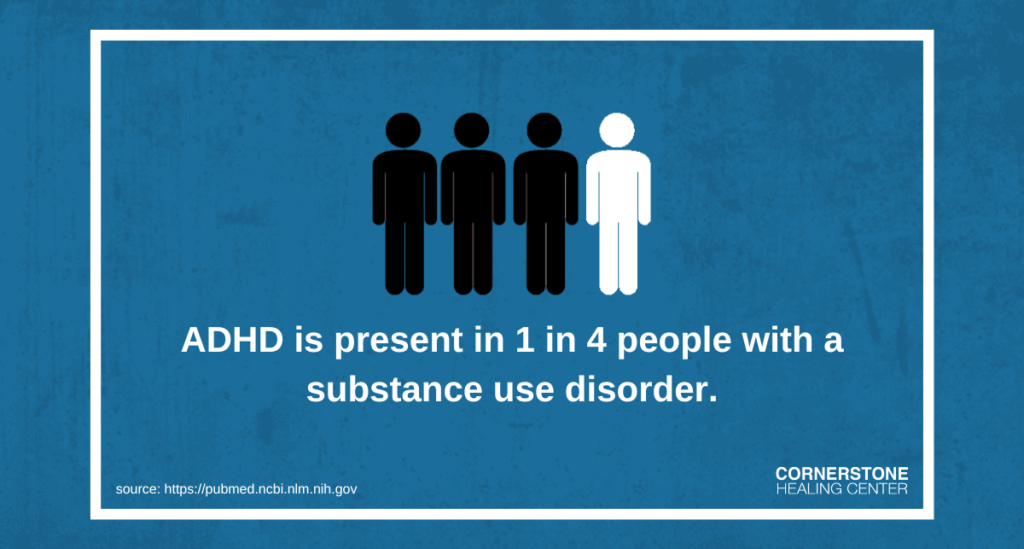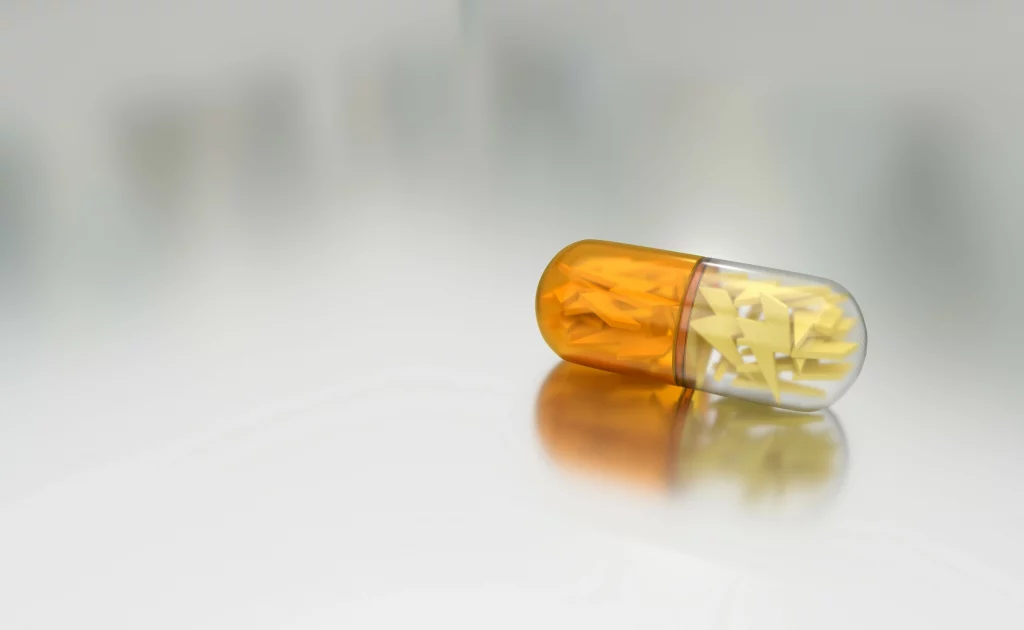What is Adderall Used For?
Adderall is a powerful medication to help people who suffer from ADHD and narcolepsy by boosting energy to the Central Nervous System. It has been proven highly effective for those living with these conditions as it helps them focus, control impulsive behavior, and stay awake. Although Adderall can be extremely beneficial for those suffering, patients must understand the risks1 and benefits of this medication to make an informed decision before beginning treatment. A physician should be consulted so they can discuss the best course of action and provide adequate monitoring while on this drug.Can Adderall can be abused and lead to dependence?
Adderall can be a helpful medication for those struggling with Attention Deficit Hyperactive Disorder (ADHD). However, it is important to be aware that Adderall, like any other prescription drug, has the potential to be abused. Taking higher doses than prescribed or non-prescribed usage can lead to dependence, making it difficult to feel normal without taking the drug. It is extremely important to take the medication by a doctor’s instructions to avoid abuse and ensuing consequences.Knowing the Signs of Adderall Abuse
Adderall addiction can have serious, long-term consequences if left unchecked. One of the key ways to spot signs of addiction is to assess your usage and understand how it’s impacting your life both physically and mentally.
Examples of signs include taking more than prescribed, ingesting Adderall without a prescription, continuing to use despite experiencing negative consequences, and even feeling withdrawal symptoms when stopping use.
If you or someone you know is exhibiting these warning signs, then now’s the time to reach out for help managing their addiction before it becomes irreversible.
Signs of Adderall Addiction
- Taking higher doses than prescribed
- Running out of your medication and having to ask your doctor or psychiatrist for early refills
- Taking Adderall without a prescription
- Needing increasing amounts of Adderall to feel its effects
- Feeling withdrawal symptoms when not taking Adderall
- Neglecting commitments, activities and relationships
- Financial difficulties
- Engaging in risky behaviors
- Feeling a “high” or sense of euphoria
- Experiencing anxiety, agitation or irritability when not taking Adderall
- Changes in appetite or sleep patterns
- Continuing to take Adderall despite negative consequences

What about those who have ADHD and need medication but also suffer from addiction?
ADHD and addiction are interconnected, and experts do not doubt it. Over 15%2 of those with ADHD have co-occurring substance use disorders. Some studies indicate that about 1 in 4 patients3 who seek help for addiction have ADHD as well. For those living with ADHD who may also be struggling with addiction, it can be a frustrating experience to realize that you might need stimulant medication to help you function.
It’s important to know that many non-narcotic medications are used to treat ADHD. These medications are best because they have a low risk of addiction.
If these medications don’t work, speak with your medical providers. Addiction and mental health counselors can provide insight into how to manage the use of Adderall in a safe, responsible way.
How Do I Stop Abusing Adderall?
The first step in stopping Adderall abuse is to notify your doctor of your concerns and begin the process of seeking treatment.
Treatment options may include inpatient treatment, outpatient treatment, individual therapy, group counseling, and other forms of alternative treatment.
Therapy can be used to understand why someone is abusing the drug and provide strategies for managing stress and triggers that lead to drug use.
Group counseling can provide support and accountability for those going through addiction recovery.
Anyone seeking assistance with Adderall abuse must find a drug and alcohol treatment center to help them turn things around.
Will I be Able to Function if I Stop Using Adderall?
Yes, with the right strategies and support, you can function without using Adderall.
Many non-stimulant medications can be used in place of Adderall, as well as cognitive behavior therapy (CBT) which can help individuals gain better control over their thoughts and behaviors4.
It is important to remember that the process of recovery from addiction is long, and it takes time for an individual to re-adjust to life without Adderall.
With proper help and support, however, it can be done.
I know at the moment, you might think that there’s no way you’ll be able to adjust, but the truth is that you absolutely can.
Many people who have abused Adderall for a prolonged period find it difficult to function without taking the drug.
But with proper medical and psychological care, it is possible to lead a healthy, productive life without relying on Adderall.
Through therapy and other forms of treatment, people can learn how to manage their mental health without relying on drugs. It is possible to find a way out of the darkness and lead a fulfilling life without Adderall.
Is Adderall the Same as Meth?
The short answer is no; Adderall and Methamphetamine are not the same. Although they have similar chemical structures, they are used in drastically different ways, providing distinct outcomes.
Adderall is a prescription stimulant most often prescribed to patients with Attention Deficit Hyperactivity Disorder (ADHD).
When taken, it can decrease impulsiveness, improve focus and concentration, and give increased energy.
On the other hand, meth is a stimulant that is way stronger than Adderall. The drug produces intense euphoria and many negative and long-term health effects, such as paranoia, hallucinations, and cravings for more meth.
Ultimately, both drugs affect how our bodies interact with dopamine; however, Adderall does this in a much milder fashion and with doctor supervision.
Can Adderall Use Lead to Meth Use?
The use of Adderall can lead to the abuse of meth and other street drugs through a process known as “drug-seeking behavior.”
This occurs when an individual misuses their prescription to get the same effects that they would from a harder drug like meth.
It is important to remember that Adderall is not intended to be used as a recreational drug and that misuse of this medication can lead to serious consequences.
Therefore, it is important to use Adderall responsibly and only under the watchful eye of a doctor to avoid unwanted side effects or even addiction.
Adderall Addiction Continues to Increase
Adderall addiction has become more and more common in today’s society. Often, people are unaware of the severity of the addiction until they have either experienced it firsthand or have close friends or family who have.
What starts as a way to get ahead academically often becomes a full-fledged addiction where a person finds themselves unable to function without the drug, not only cognitively but also emotionally and spiritually.
Those struggling with Adderall addiction are usually stuck in a cycle of using, coming down off of their high, crashing afterward, and trying desperately to make it right by taking more Adderall to feel better.
Hearing stories of Adderall addiction can help us understand why getting professional help is so important so that we can properly support ourselves and those suffering from this growing crisis.
Get Help for Adderall Addiction
Adderall addiction can feel like an intimidating challenge, but if you take things step-by-step, you can find yourself in a successful long-term recovery.
Cornerstone Healing Center is a drug and alcohol treatment center in Scottsdale, Arizona, that can help you overcome your addiction to Adderall.
If you’re concerned about your Adderall usage and looking for a treatment center to help you, call us at (800) 643-2108.









